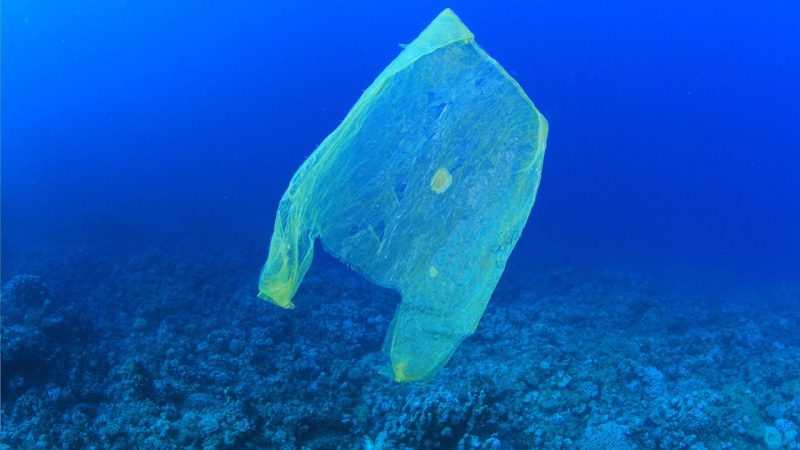Ocean Plastic Pollution: An Ongoing Crisis
Green

June 28, 2020, 7:06 am
By: Dr Samar Hamad
The negative impact of plastic pollution on marine environment and wildlife is undeniable. Oceans around the world are filled with plastic debris and marine species are ingesting and getting entangled in plastic waste leading to their starvation and/or suffocation. According to the United Nations Environment Programme (UNEP), 8 million tonnes of plastic waste enter the oceans every year. At this rate, Earth’s oceans will end up filled with more plastic than fish by 2050. The UNEP also indicates that 95% of the plastic waste is submerged under the water surface in the form of microplastics and microbeads, while the plastic debris that mostly seen along coastlines and floating on ocean surfaces represents a small portion (approximately 5%) of the actual amount of plastic waste dumped into oceans. Sustainable solutions are urgently needed to save the marine ecosystem (Earth’s largest ecosystem) and preserve the oceans for future generations.
Measures to Address Marine Plastic Pollution
Numerous practices have developed to clean up existing plastic debris; however, it has been found that removing plastic waste (especially underwater microplastics) from oceans is an extremely difficult task. Hence, more effective measures have been developed to tackle the over-consumption of single-use plastic and the mismanagement of plastic waste in order to address the root causes of marine plastic pollution. Such measures primarily involve a combination of the following basic concepts:
- Limiting single-use plastic: Using less plastic is the most efficient practice to eliminate ocean plastic pollution. Communities around the world are limiting their reliance on single-use plastic and encouraging the reusable versions of such products. Recent advancements in material science research and improved product designs have great impact on reducing the production of single-use plastic. Enforcing regulations to ban single-use plastics and economic incentives for reusable products can further limit the excessive use of single-use plastic and cut the over-consumption of plastic.
- Managing plastic waste: In order to improve plastic waste collection and management, a circular economy approach – in which plastic products are used, recovered, and reused multiple times – must be adopted rather than relying on a linear economy (plastic products are made, used, and disposed). Building waste management and recycling infrastructure to allow easy access to recycling options and similar responsible waste disposal alternatives can significantly reduce the amount of plastic waste enters the ocean. Compostable and biodegradable plastics substitutes have become a popular alternative to reduce plastic waste. In addition, the technological innovations to improve products packaging design, considering reusing, recycling, and end of life stages of products have emerged to keep post-consumer plastics in a circular economy loop. However, producers and distributors must commit to adopt end-of-life waste management practices.
- Promote marine conservation: Efforts must be put to develop infrastructure to stop plastic pollution and capture plastic waste at source. Campaigning to raise the public awareness regarding marine conservation is also essential to promote more ethical consumer practices and minimise marine plastic pollution.
Holistic approaches to address marine plastic pollution must be developed based on appropriate policy frameworks and mechanisms with coordinated actions across multiple sectors and stakeholders in many regions around the world. They should aim to stimulate mitigation actions that tend to reduce the formulation of plastic waste at source and encourage the removal of plastic pollution before reaching coastlines. Such approaches tend to reduce plastic use and appropriately manage plastic waste to save the future of marine environment and wildlife.
More information available at:
UN News. (2019). Microplastics, microbeads and single-use plastics poisoning sea life and affecting humans. Retrieved from: https://news.un.org/en/story/2019/11/1050511










